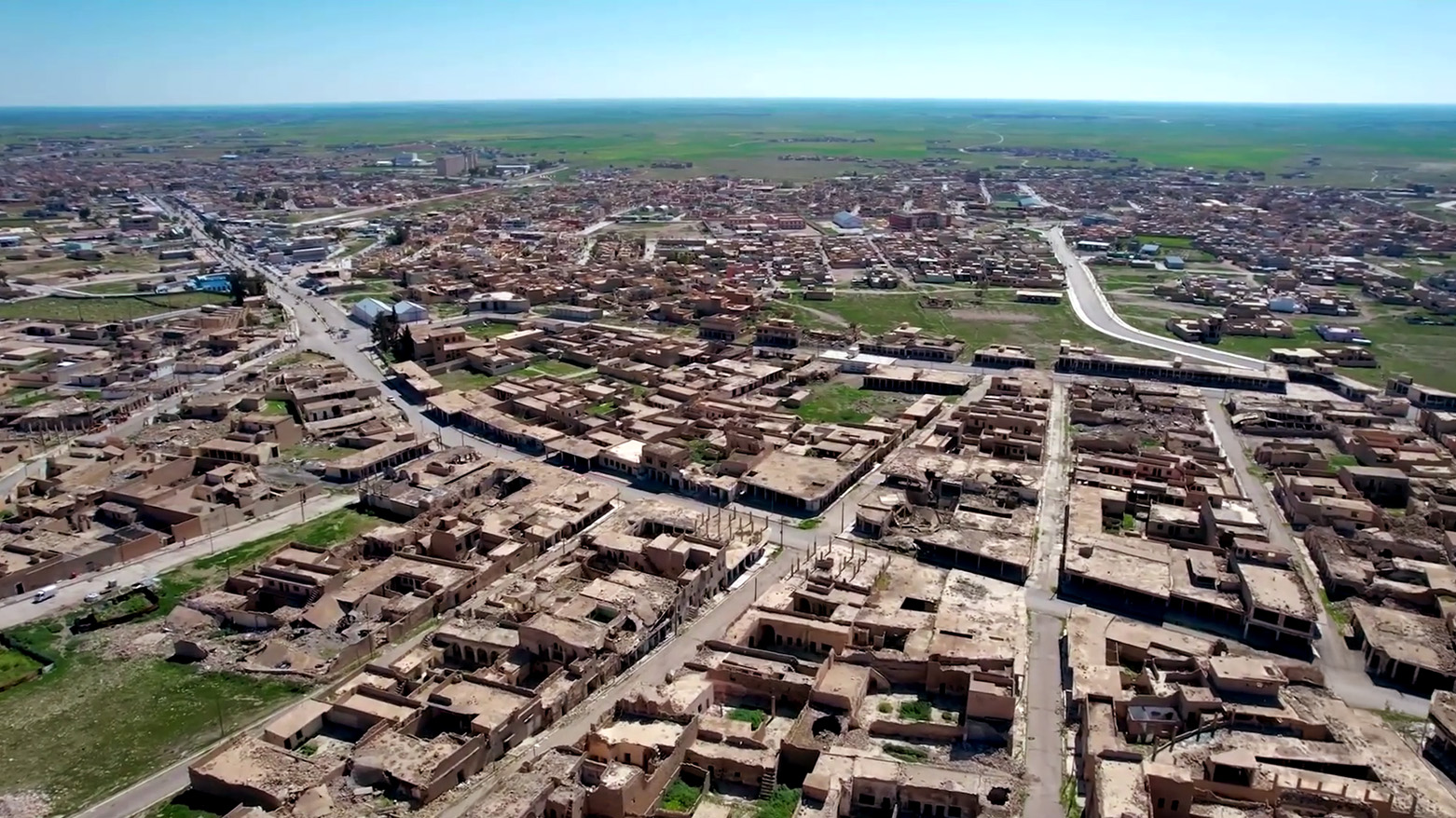PKK Disarms, and Sinjar Whispers: 'Let This Be a New Chapter; One Defined by Peace'
“This peace decision will benefit all of Kurdistan, especially Sinjar,” a Nineveh Provincial Council member told Kurdistan24. “We urge all groups to respect it—our city needs stability, not more weapons.”

By Kamaran Aziz
ERBIL (Kurdistan24) – In the aftermath of the Kurdistan Workers’ Party (PKK)’s declaration to disarm and dissolve its armed structure, the war-scarred town of Sinjar is watching developments closely, daring to hope for calm after years of conflict.
For many Yazidis, long displaced by war and terror, the move represents a possible turning point—one that may finally lift the shadow of violence that has haunted their homeland.
As one of the regions most deeply affected by Türkiye’s conflict with the PKK, Sinjar has borne the brunt of cross-border strikes, displacement, and security vacuums. Now, amid the shifting regional dynamics, Yazidi residents and officials are urging all actors involved to uphold the peace initiative and usher in a new era of stability.
“We, the people of Sinjar, believe our region needs a new chapter—one defined by peace,” said Nasser Shahwani, a Yazidi activist from Sinjar, in an interview with Kurdistan24. “In recent years, Sinjar has been subjected to multiple Turkish airstrikes, resulting in the deaths of many civilians. We earnestly hope this is the beginning of a genuine end to these conflicts that have burdened us for so long.”
The pain is still fresh for many Yazidis who remember the genocide committed by ISIS in 2014. Tens of thousands were displaced, thousands killed or kidnapped, and many remain unaccounted for.
Hussein Bashki, a displaced Yazidi in Duhok, recounted the trauma. “What happened in Sinjar in 2014 was a tragedy that no nation or city should ever endure. Girls were abducted, young men and mothers were slaughtered. Despite this immense pain, we remain determined to rebuild our city and rise again.”
Under the framework of the ongoing peace process, Turkish forces are expected to withdraw from Iraqi territory once the PKK fully implements its dissolution. The arrangement, negotiated with Baghdad, places added pressure on the Iraqi federal government to reassert control over Sinjar and eliminate the presence of competing armed groups.
Efforts to address Sinjar’s security and administrative fragmentation began in earnest in October 2020, when the federal government and the Kurdistan Regional Government (KRG) signed the Sinjar Agreement.
Brokered with support from the United Nations, the deal aimed to normalize governance in the district, dismantle non-state armed factions, and facilitate the return of displaced families.
The Kurdistan Regional Government (KRG) has repeatedly reiterated its support for the voluntary and dignified return of refugees to their homes, emphasizing the need for genuine efforts to restore peace and stability in Sinjar.
The agreement called for the withdrawal of all militias, including the PKK-affiliated Shingal Resistance Units (YBS), the re-establishment of local governance with a new mayor appointed jointly by Baghdad and Erbil, and the coordinated restoration of services and reconstruction efforts. However, implementation has remained slow, hindered by competing power structures and security vacuums.
Jamal Shasho, a member of the Nineveh Provincial Council, urged swift federal action. “This recent peace decision will benefit all of Kurdistan, and especially Sinjar, which has become a battleground for multiple armed groups,” he told Kurdistan24. “We call on these groups and their leaders to respect the disarmament decision—our city needs no more weapons, only stability. We also call on the federal government to step up and take serious measures to address the issue of armed factions in Sinjar.”
While the announcement of the PKK’s disarmament has sparked cautious optimism, it has also revived long-standing grievances about governance and reconstruction. More than 40% of Sinjar’s population remains displaced, many of them living in camps in Duhok and elsewhere, unable to return due to insecurity and a lack of basic services.
Still, the yearning for peace is strong. For the people of Sinjar, who have endured occupation by ISIS, bombings by foreign powers, and militia entrenchment, the hope is that the PKK’s withdrawal could trigger a broader demilitarization of the region and a return to civilian life.
Having paid an immeasurable price during the years of war, the residents of Sinjar now stand united in their demand for an end to conflict. The disarmament of the PKK, if followed through with sincerity and verified implementation, may yet offer the people of Sinjar a long-awaited chance to rebuild their homeland in peace.